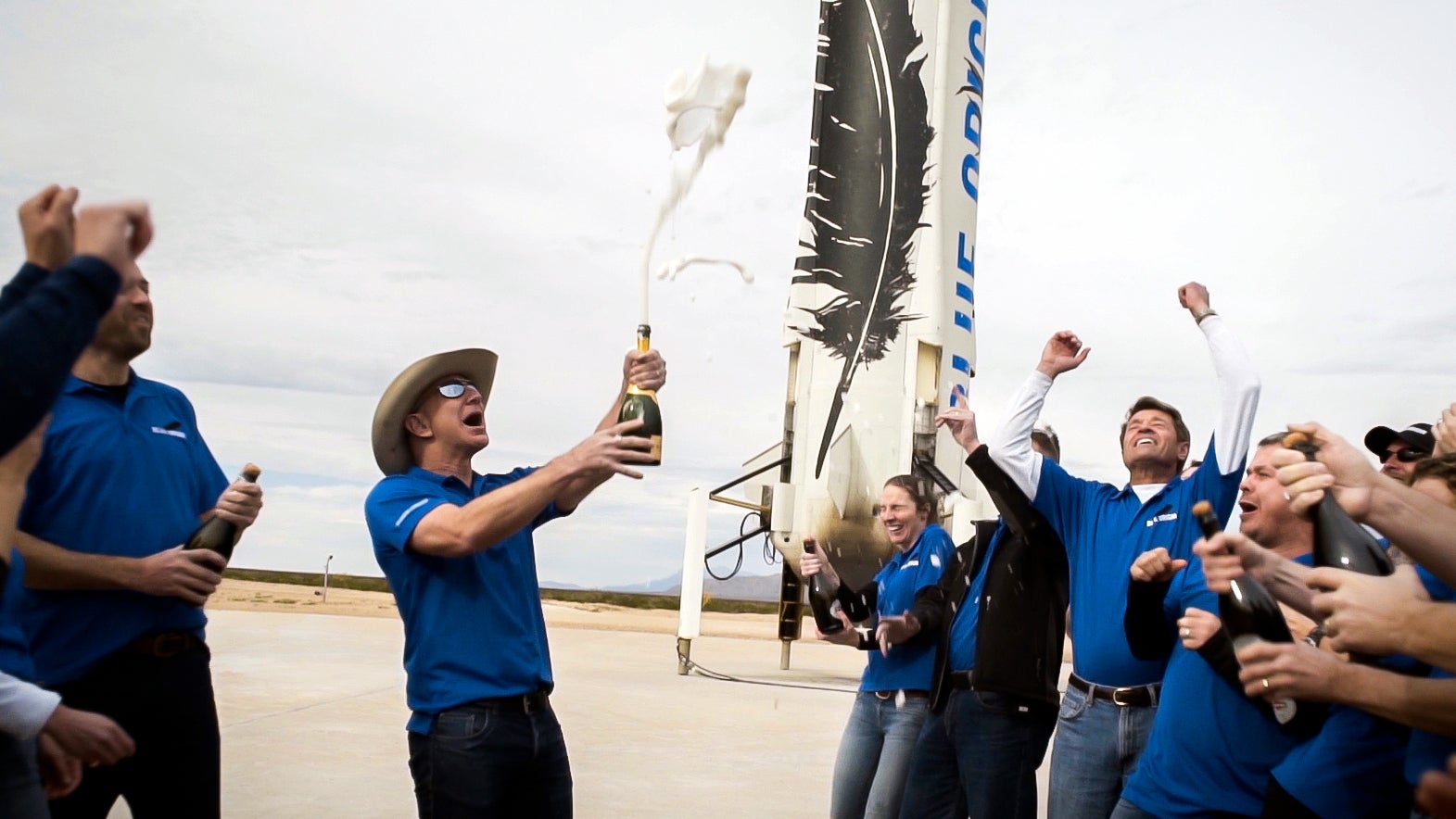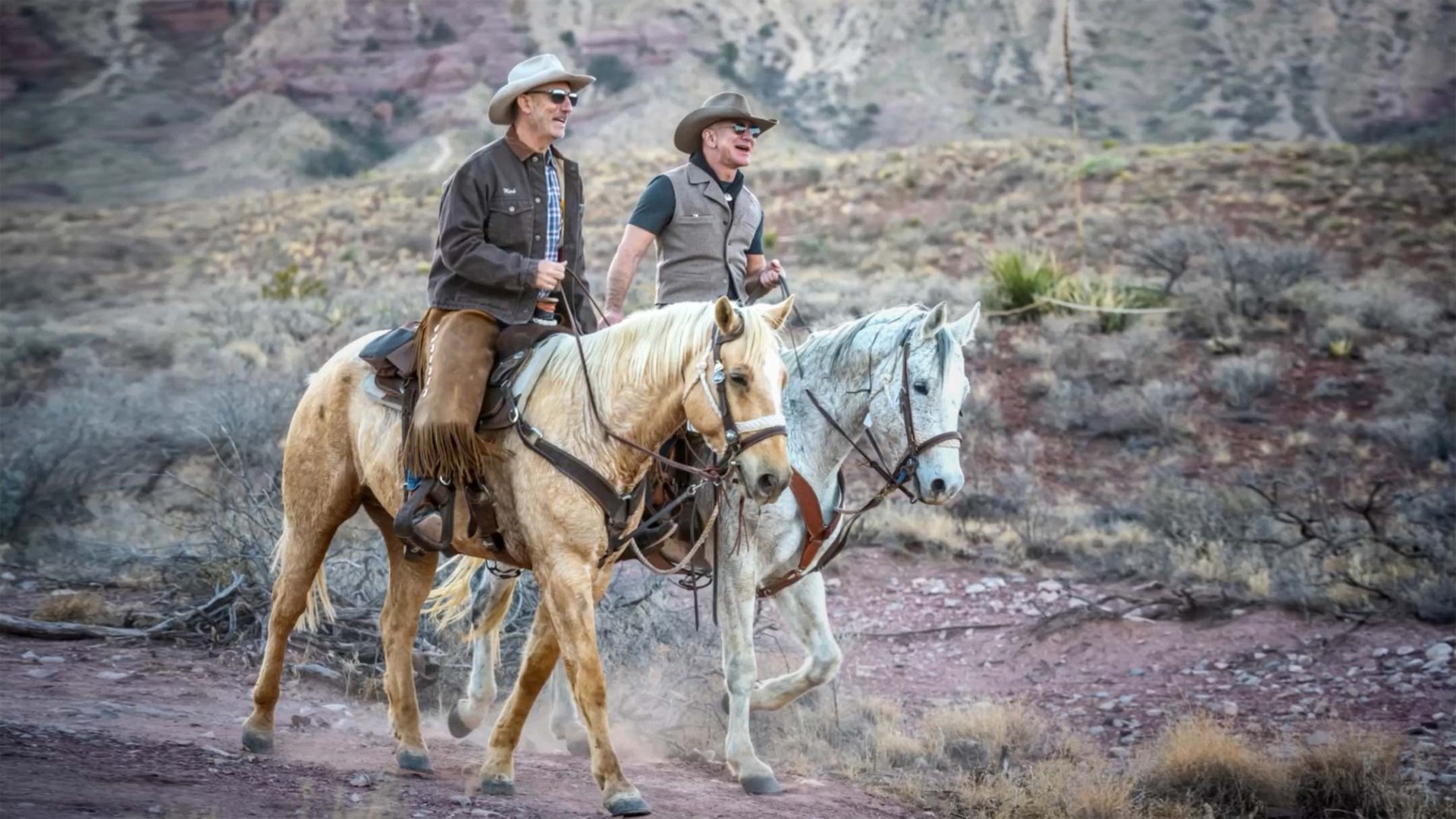What is Jeff Bezos trying to tell us about Blue Origin?
More than half a million people watched on Monday (June 7) as Amazon founder Jeff Bezos, voice thick with emotion, asked his brother to take a 20-minute flight to space with him. “I think it would be meaningful,” Jeff intoned. “Are you serious?” a flabbergasted Mark Bezos replied.


More than half a million people watched on Monday (June 7) as Amazon founder Jeff Bezos, voice thick with emotion, asked his brother to take a 20-minute flight to space with him. “I think it would be meaningful,” Jeff intoned. “Are you serious?” a flabbergasted Mark Bezos replied.
It’s a fair question. Blue Origin, the space firm founded by Bezos in 1999, is gearing up to finally use its New Shepard spacecraft to carry passengers to the edge of space on July 20. An online auction, with a current top bid of $2.8 million, will determine the first paying customer. Bezos was rumored to be joining the first crew, and the announcement that he would do so made news around the world.
Why Bezos is going to space
The publicity surrounding this moment, and the launch next month, are a major opportunity for Bezos to make his case for space to the public. To that end, Bezos used his announcement to emphasize the reportedly life-changing perspective gained by going to space, and his hope of fulfilling his childhood dreams.
Bezos taking “the greatest adventure” with his “best friend” isn’t doing any favors to, say, journalists who report that Blue Origin is more than a vanity project. Here’s an official picture of the brothers Bezos riding horses together:

But the heavily-produced social media post might offer some insight into a darker truth about the new business of space tourism. The executives at Blue Origin are on Twitter, after all, and no doubt realize that a significant chunk of the reaction to the news came in tweets like this one:
The new age of space tourism is just about upon us, and so is the backlash. With Blue Origin and its competitor Virgin Galactic preparing to offer suborbital rides to the edge of space, and SpaceX now renting out its Dragon spacecraft to ferry paying passengers to the International Space Station, wealthy space fans will soon be able to visit the final frontier.
Advocates say that, just as with mobile phones and air travel, space tourism will start off pricey, but competition and economies of scale will drive down the cost so that regular folks can get in on the action. Critics counter that this most conspicuous of consumption is a sign of decadence and a broken society.
While we wait for someone to be proven right, PR stunts fill the gap: Jared Isaacman, the billionaire taking a SpaceX Dragon on a multi-day orbital joyride later this year, is bringing a St. Jude’s Children’s Hospital nurse and raising money for the institution. (The money raised in New Shepard’s ticket auction is going to charity, too, although the STEM education-focused Club for the Future is run by Blue Origin, and hasn’t existed long enough to file a spending report with the IRS.)
In May, when Blue announced that it would sell just one ticket on the first flight, the possibility of Bezos joining the crew seemed likely, as did some kind of charitable gesture: Let’s fly some essential workers, or allow Texas to raffle off New Shepard flights as part of a coronavirus vaccine promotion. This could still happen: There are still three available seats on the flight.
Who’s afraid of suborbital rockets?
While Monday’s announcement in the style of a Bachelor rose ceremony seemed a bit off-key, the treacly Instagram video might have been more thoughtful than it appeared. If the top-line message is that it’s great to be rich and related to Jeff Bezos, the more subtle messaging was that the New Shepard is safe—certainly safe enough for the world’s occasionally richest man and his beloved sibling.
The physics of space travel mean any vehicle that can take you there is cramming a lot of power into a small frame. Moving at several times the speed of sound, there is little margin for error if something goes wrong. And there isn’t much public insight into safety around privately owned and largely unregulated New Shepard, except that it has made 15 successful flights since 2015.
If Blue’s marketers have found that their potential pool of customers is limited by fear—not every ultra-wealthy person is, like Isaacman, a hobbyist fighter pilot—the right move might be a rebrand: from “pushing the limits of human endurance” to “bringing families together,” even at the risk of driving home the exorbitant privilege of it all.
Of course, the upcoming media spectacle is all of these things: a signal that space can be safe for the mass market, and a chance for Bezos to score bragging rights as the first billionaire to cross the Karman line, bringing whoever he wants with him. On the latter point, a message to Jeff: We get it.